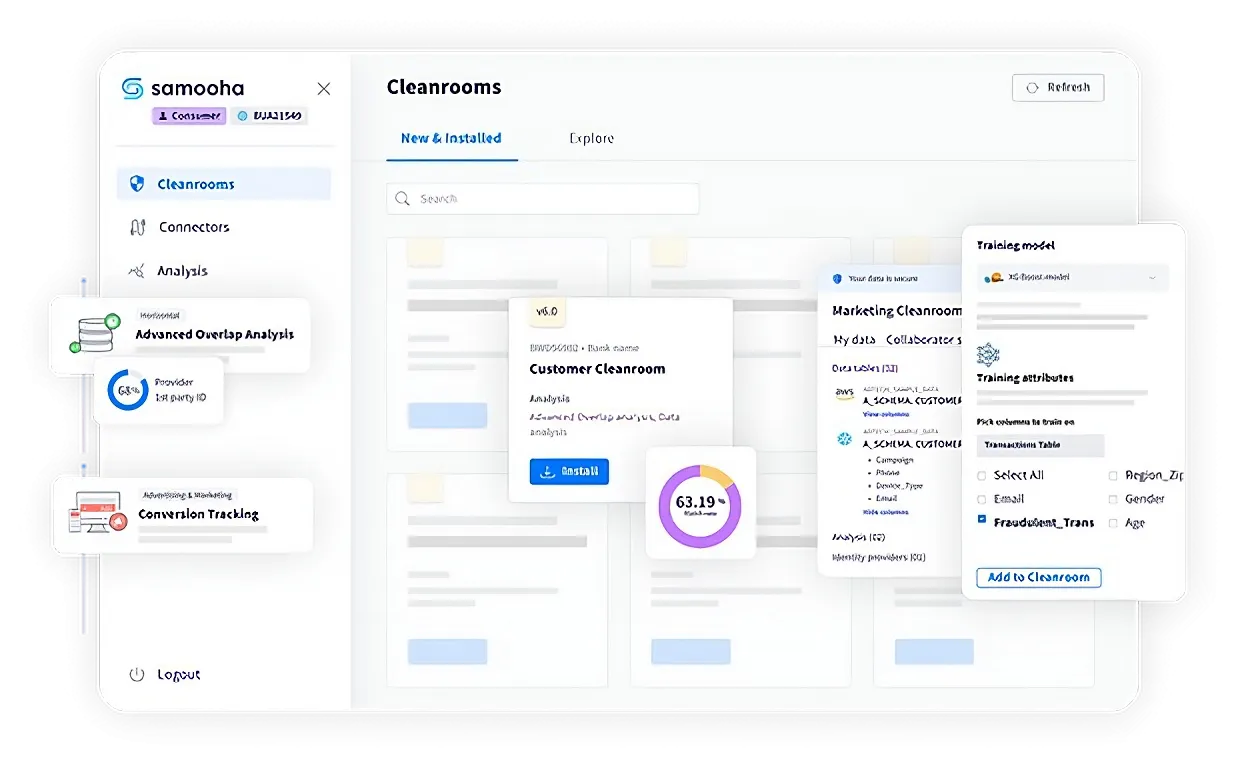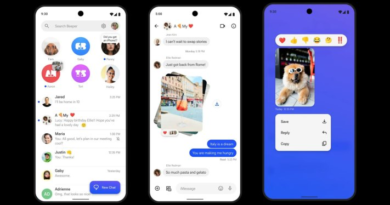Samooha launches with tech that lets companies securely share data

Samooha, a startup developing a “cross-cloud” data collaboration platform, today announced that it raised $12.5 million in a funding tranche backed by Altimeter Capital and Snowflake Ventures, among others. CEO Kamakshi Sivaramakrishnan says that the cash infusion — Samooha’s first — will be put toward product development and hiring; the plan is to grow the startup’s team from 14 developers to roughly 20 by the end of the year.
So, you might be wondering, what exactly does Samooha do? In brief, the platform lets businesses securely share, collaborate on and gain insights from their and their partners’ data, regardless of the underlying cloud and data stack.
It’s not a new concept. “Data clean rooms” have been around for a while, pitched both by tech giants and startups as the ideal solution for sharing sensitive data across computing environments. Just a few years ago, Harbr raised $38.5 million for its tech to help enterprises securely exchange and share big data troves. InfoSum and Decentriq also offer secure data-sharing tools, while Amazon Web Services recently launched a new data clean room product — called Clean Rooms, appropriately — aimed at organizations that regularly share data with outside partners.
To the extent Samooha’s differentiated, it leans heavily on the Snowflake ecosystem — which isn’t exactly surprising given Snowflake’s involvement in the startup’s fundraising. A native app on Snowflake, Samooha provides a no-code UI customers can use to access and build clean room apps. The underlying trust boundary of Snowflake’s native apps framework provides the secure computation environment, Sivaramakrishnan explained in an interview with TechCrunch, while eliminating the need for any data migration.

Image Credits: Samooha
“Security guarantees are enforced both technically via cryptographic multi-party computation technologies and with user-defined policies like approved query templates. This powers fast and secure analysis on joint data in the clean room,” she added. “Think of a very intuitive collaboration product experience like Slack where you are not simply communicating with co-workers in a channel but are actually learning, sharing and collaborating around data owned by you and your partner by running analytics workloads without moving and securing data in that channel or room.”
Samooha intends to go after verticals it believes might be especially underserved, like healthcare, financial services, advertising, retail and entertainment. Media in particular could prove to be lucrative; Gartner predicts that by 2023, 80% of advertisers with media budgets of $1 billion or more will use data clean rooms.
Sivaramakrishnan claims that Samooha already has Fortune 500 customers, although she wouldn’t name names. The sales pitch was made easier by the pandemic, she says, because it shone light on the need for data collaboration in a safe, secure fashion across industries.
It probably depends on the industry — an August 2022 survey by Habu found that over half of marketing professionals have never used a data clean room. But Samooha’s early traction suggests that there’s some truth to Sivaramakrishnan’s claims.
“Broadly speaking, leveraging customer, consumer and enterprise data is a fact of life for any industry and use case. But most businesses have an incomplete view of customer and consumer data,” Sivaramakrishnan said. “The pandemic shone light on the need for data collaboration in a safe, secure fashion across multiple industries, be that healthcare, manufacturing, supply chain and logistics, and more . . . Our technology and product approach, coupled with the commercial model, gives us conviction that we are uniquely solving for a critical enterprise data function and hence, has the potential to withstand headwinds.”




